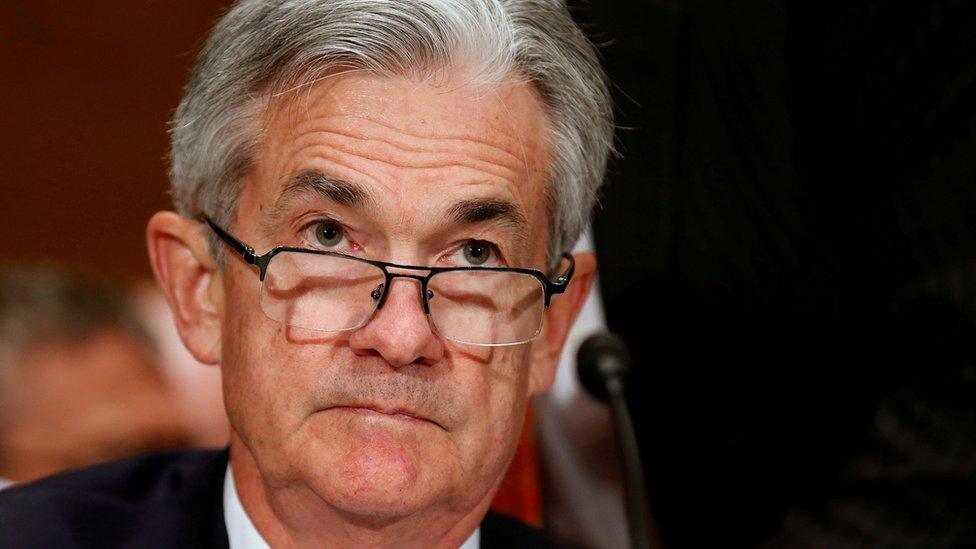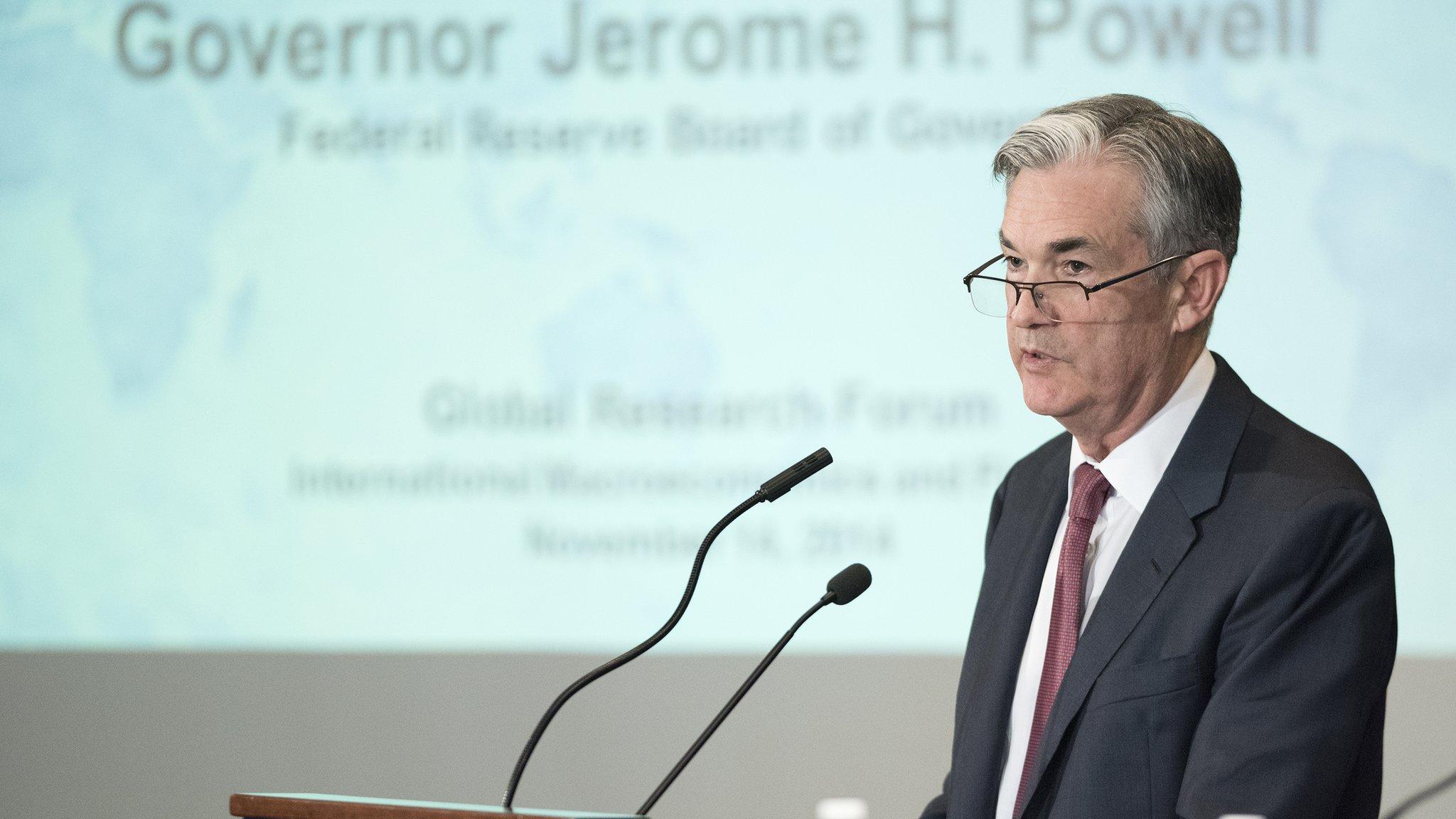Trump names Jerome Powell to lead Fed
- Published

Jerome Powell was appointed to the Federal Reserve board in 2012
President Donald Trump has named Jerome Powell as his pick to lead the Federal Reserve.
Mr Powell, a Republican and multi-millionaire, currently serves as a member of the bank's board.
He had been widely tipped as the top choice for over a week.
President Donald Trump interviewed five candidates for the role, including current chair Janet Yellen whose term finishes in February.
Despite a tradition of reappointing Fed chairs, President Trump has said he wanted to make his own "mark".
"I think Janet Yellen is excellent," Mr Trump told reporters during a meeting with his cabinet on Wednesday.
But asked if she was his pick, the president said: "I didn't say that."
Mr Powell, who has an estimated income of between $20m and $55m (£15m-£41m), is a lawyer by training and a former partner in the Carlyle Group - one of the world's biggest investment companies.
He was appointed to the Federal Reserve board in 2012 and has voted with the majority on issues such as interest rates.
Reaction to the pick
John Silvia, chief economist for Wells Fargo, said the selection of Mr Powell is a bit of a "surprise", given the president's campaign criticism of the Fed's recent policies.
But it also reflects economic and political realities.
"It's an easy transition, both in terms of doing the policy but also in terms of getting approval in hearings in front of Congress," Mr Silvia said.
"Most people in the financial markets would feel a comfortable relationship with Governor Powell."
Goldman Sachs chief executive Lloyd Blankfein praised the selection in an interview on Bloomberg TV.
"His background is a terrific background - again a lot of government service, service in the Fed, service in the private sector," Blankfein said.

Analysis by Michelle Fleury, New York business correspondent
Jay Powell is seen as the 'status quo' candidate. When it comes to monetary policy, he doesn't appear to have deviated from the path set by the current Fed Chair Janet Yellen to raise rates at a slow and steady pace.
And the appeal of his appointment is easy to understand. After all, what's not to like about full employment and low inflation if you are a central banker or indeed the President. That means more people with jobs and more money in their pockets.
The question is how will he respond when unexpected events unfold? And let's face it, nasty surprises have a habit of creeping up. History teaches us that the next crisis will be different from past financial crises.
In such an instance, will being the continuity candidate be a hindrance or a help? Hopefully the latter given the importance of the role to the global economy.
- Published2 November 2017
